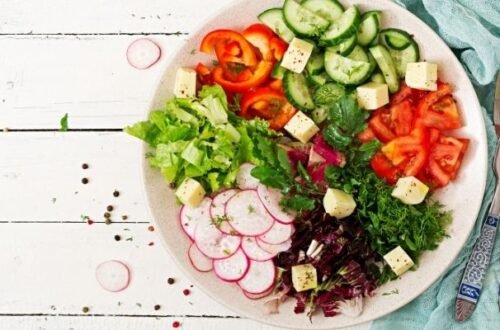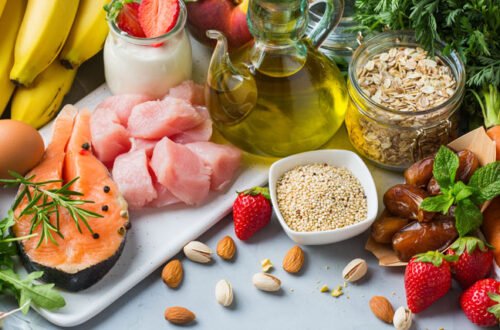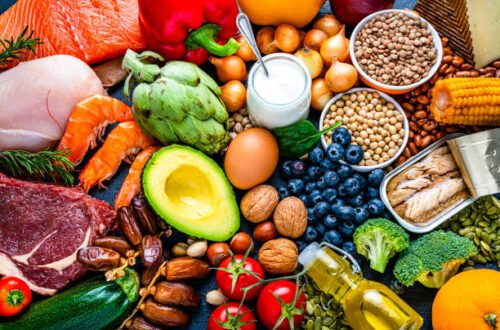Whether you’re sprinting down a track, lifting weights, or mastering yoga poses, your diet is the fuel that powers your performance. I learned this the hard way during my first half-marathon, when a pre-race donut left me sluggish by mile five. Quality nutrition isn’t just about eating healthy—it’s about giving your body the right tools to excel. The science backs this up: studies from the Journal of Sports Sciences show that optimized diets can improve endurance by up to 20% and strength by 15%. This article dives into how a quality diet and nutrition can elevate your sports performance, with practical tips, expert insights, and a touch of humor to keep you engaged. Let’s explore how to eat your way to victory.
Why Nutrition Is the Game-Changer for Athletes
Your body is like a high-performance car—what you put in the tank matters. A quality diet supports muscle growth, speeds recovery, and boosts energy, directly impacting your athletic output. From weekend warriors to Olympians, nutrition is the foundation of success.
Every bite you take either fuels your goals or holds you back. Let’s make every meal count.
The Science Behind Nutrition and Sports Performance
Nutrition affects every aspect of athletic performance, from energy production to recovery. Carbohydrates fuel high-intensity efforts, proteins repair muscles, and fats sustain long-term energy. According to the American College of Sports Medicine, a balanced diet can enhance performance by optimizing glycogen stores and reducing fatigue.
Understanding the science helps you make smarter food choices for peak results.
Macronutrients: The Power Trio
Carbs, proteins, and fats are the cornerstones of an athlete’s diet. Each plays a unique role in fueling, building, and sustaining your body during training and competition.
Balancing these nutrients is key to unlocking your full potential.
Carbohydrates: Your Energy Source
Carbs are your body’s primary fuel, stored as glycogen in muscles and the liver. A 2020 study in Sports Medicine found that high-carb diets improve endurance performance by 10–15%. Think oats, sweet potatoes, or whole-grain pasta.
Carbs keep your energy tank full, especially for intense workouts.
Proteins: The Muscle Builders
Protein repairs and builds muscle tissue after exercise. The International Society of Sports Nutrition recommends 1.6–2.2 grams of protein per kilogram of body weight daily for athletes. Chicken, eggs, and lentils are great choices.
Protein is your recovery MVP, helping you bounce back stronger.
Fats: The Endurance Fuel
Healthy fats, like those in avocados or nuts, provide long-lasting energy for endurance activities. They also aid hormone production, crucial for muscle growth. Aim for 20–35% of your calories from fats, per Dietary Guidelines for Americans.
Fats keep you going when the going gets tough.
Micronutrients: The Unsung Heroes
Vitamins and minerals, like vitamin D, iron, and magnesium, support everything from oxygen transport to muscle function. A deficiency can tank your performance—iron deficiency, for example, reduces endurance by up to 30%, per Nutrients journal.
Micronutrients are small but mighty allies in your athletic journey.
Key Micronutrients for Athletes
- Vitamin D: Boosts bone health and muscle function.
- Iron: Enhances oxygen delivery to muscles.
- Magnesium: Reduces cramps and aids recovery.
- Calcium: Supports strong bones and muscle contractions.
These nutrients ensure your body runs like a well-oiled machine.
Timing Your Nutrition for Optimal Performance
When you eat is as important as what you eat. Timing your meals around workouts maximizes energy and recovery. I once skipped a post-workout meal and felt like a zombie for days—lesson learned.
Proper timing turns food into performance fuel.
Pre-Workout Nutrition
Eat a carb-rich meal 2–3 hours before exercise to top off glycogen stores. A banana with peanut butter or a turkey sandwich works well. For quick energy, a small snack 30 minutes prior, like a granola bar, does the trick.
Pre-workout meals set the stage for a strong performance.
Post-Workout Recovery
Within 30–60 minutes after exercise, consume a mix of carbs and protein to replenish glycogen and repair muscles. A 2021 Journal of the International Society of Sports Nutrition study suggests a 3:1 carb-to-protein ratio, like a smoothie with fruit and whey protein.
Post-workout nutrition speeds recovery and preps you for the next session.
Hydration: The Silent Performance Booster
Dehydration can cut performance by 10%, per Sports Medicine. Aim for 2–3 liters of water daily, plus 500–1,000 ml per hour of exercise. Electrolytes like sodium and potassium, found in sports drinks, help maintain fluid balance.
Staying hydrated keeps you sharp and strong.
Top Nutrition Strategies for Sports Performance
Here are practical, science-backed strategies to optimize your diet for athletic success. These tips are universal, whether you’re a sprinter or a yogi.
A tailored nutrition plan can elevate your game to new heights.
Strategy 1: Prioritize Whole Foods
Whole foods like fruits, vegetables, lean meats, and whole grains provide nutrient density. Processed foods often lack essential micronutrients and can spike blood sugar, leading to energy crashes.
Whole foods fuel your body with clean, sustainable energy.
Strategy 2: Carb Load for Endurance
For events like marathons, carb loading 1–3 days prior can boost glycogen stores by 20–40%, per Sports Medicine. Eat 8–12 grams of carbs per kilogram of body weight daily—think pasta, rice, or quinoa.
Carb loading powers you through long, grueling sessions.
Strategy 3: Optimize Protein Intake
Spread protein intake evenly across meals to maximize muscle repair. A 2022 Nutrients study recommends 20–40 grams per meal. Greek yogurt, tofu, or fish are excellent sources.
Consistent protein intake builds stronger muscles over time.
Strategy 4: Include Healthy Fats
Incorporate omega-3-rich foods like salmon or chia seeds to reduce inflammation and support recovery. A Journal of Sports Sciences study found omega-3s improve muscle recovery by 15%.
Healthy fats are your secret weapon for endurance and recovery.
Strategy 5: Supplement Wisely
Supplements like whey protein, creatine, or branched-chain amino acids (BCAAs) can enhance performance when diet alone isn’t enough. A 2020 Journal of Strength and Conditioning Research study shows creatine boosts strength by 8–14%.
Consult a dietitian to choose supplements that fit your needs.
Tools and Resources for Nutrition Planning
Planning your diet doesn’t have to be overwhelming. Here’s a comparison of top tools to streamline your nutrition:
| Tool | Purpose | Best For | Cost |
|---|---|---|---|
| MyFitnessPal | Tracks macros and calories | Beginners, general athletes | Free–$20/month |
| Cronometer | Detailed nutrient tracking | Micronutrient-focused athletes | Free–$8/month |
| Eat This Much | Meal planning and recipes | Busy athletes | Free–$9/month |
| TrainingPeaks | Integrates nutrition with training | Endurance athletes | $19–$49/month |
These tools make nutrition planning simple and effective.
Pros and Cons of Nutrition Tracking Apps
Pros:
- Simplifies tracking macros and micronutrients.
- Offers meal ideas tailored to your goals.
- Syncs with fitness devices for holistic tracking.
- Helps identify dietary gaps.
Cons:
- Can be time-consuming to log meals.
- Premium features often require subscriptions.
- May lead to obsessive tracking if overused.
- Accuracy depends on user input.
Balancing app use with intuitive eating ensures sustainable habits.
Personal Story: My Nutrition Wake-Up Call
During my first 10K race, I thought a sugary energy bar was enough to power me through. By kilometer six, I was gasping and sluggish—my body was screaming for real fuel. After consulting a sports nutritionist, I revamped my diet with whole foods, timed meals, and proper hydration. The next race? I shaved 10 minutes off my time and felt unstoppable. Nutrition isn’t just science—it’s personal.
Your diet can make or break your performance. Trust me, I’ve been there.
Special Considerations for Different Sports
Different sports demand unique nutritional approaches. Here’s how to tailor your diet:
Endurance Sports (Running, Cycling)
Focus on carbs (60–70% of calories) and hydration. Electrolyte drinks and gels are key during long sessions. A 2021 Nutrients study suggests 30–60 grams of carbs per hour for events over 90 minutes.
Carbs and fluids keep you going the distance.
Strength Sports (Weightlifting, Powerlifting)
Prioritize protein (1.6–2.2 g/kg body weight) and creatine for muscle growth. Timing protein post-workout is critical, per Journal of the International Society of Sports Nutrition.
Protein and supplements build strength and power.
Team Sports (Soccer, Basketball)
Balance carbs, proteins, and fats for quick bursts and recovery. Pre-game meals should be light, like rice and chicken, to avoid sluggishness.
Versatile nutrition supports dynamic performance.
Common Nutrition Mistakes to Avoid
Even well-meaning athletes can slip up. Here are pitfalls to dodge:
- Skipping Meals: Leads to low energy and poor recovery.
- Over-Reliance on Supplements: Whole foods should come first.
- Ignoring Hydration: Dehydration impairs performance.
- Fad Diets: Restrictive diets can cause nutrient deficiencies.
Avoid these traps to keep your performance on track.
People Also Ask (PAA)
What foods improve sports performance?
Complex carbs (oats, quinoa), lean proteins (chicken, tofu), and healthy fats (avocado, nuts) boost energy, muscle repair, and recovery.
A balanced diet with whole foods is key.
How does nutrition affect athletic performance?
Nutrition fuels energy, repairs muscles, and supports recovery. Proper diets can improve endurance by 20% and strength by 15%, per Journal of Sports Sciences.
Every nutrient plays a role in your success.
What are the best supplements for athletes?
Whey protein, creatine, and BCAAs are effective for muscle growth and recovery. Consult a dietitian to ensure they complement your diet.
Supplements enhance, but don’t replace, whole foods.
Where can I find a sports nutrition plan?
Visit MyPlate.gov or consult a registered dietitian. Apps like MyFitnessPal or Cronometer also offer personalized plans.
Tailored plans align with your sport and goals.
FAQ Section
Q: How much protein do athletes need daily?
A: Athletes need 1.6–2.2 grams of protein per kilogram of body weight, per the International Society of Sports Nutrition. Spread it across meals.
Q: What’s the best pre-workout meal?
A: A carb-rich meal like oatmeal or a turkey sandwich 2–3 hours before exercise, or a banana 30 minutes prior, boosts energy.
Q: How can I stay hydrated during sports?
A: Drink 2–3 liters of water daily and 500–1,000 ml per hour of exercise. Add electrolytes for intense sessions.
Q: Where can I learn more about sports nutrition?
A: Check ACSM.org, ISSN.net, or consult a sports dietitian for expert advice.
Q: Are carbs essential for athletes?
A: Yes, carbs fuel high-intensity exercise and replenish glycogen. Aim for 50–60% of calories from carbs like whole grains or fruits.
Conclusion: Fuel Your Victory with Nutrition
A quality diet isn’t just about eating right—it’s about unlocking your athletic potential. From carb-loading for endurance to timing protein for recovery, every choice matters. My own journey taught me that nutrition is the difference between struggling and soaring. Use these strategies, avoid common pitfalls, and make every meal a step toward your goals. For more resources, explore MyPlate.gov or connect with a dietitian. Here’s to crushing your next workout, fueled by the power of nutrition!





